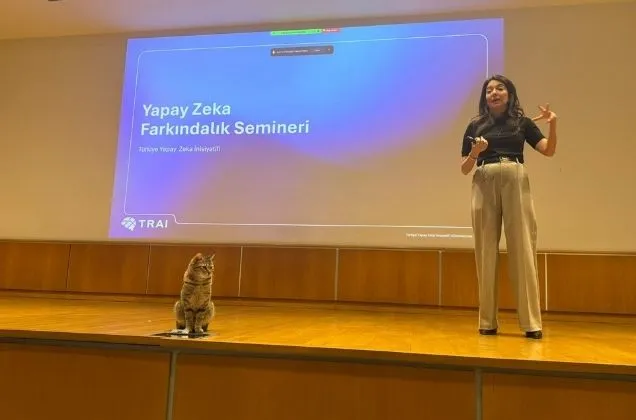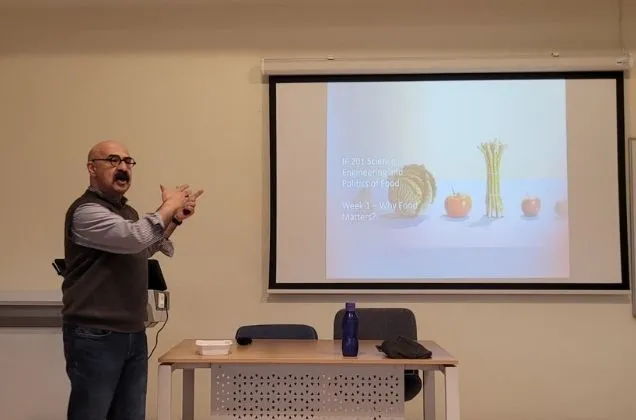14/04/2025
The 18th IICEC Conference, organized by Sabancı University Istanbul International Center for Energy and Climate (IICEC), addressed the topic of “An Overview of Energy Markets in Turkey and the World: Risks and Opportunities.” Dr. Alparslan Bayraktar, Minister of Energy and Natural Resources of the Republic of Turkey, who attended the conference on April 11 as a guest of honor, drew attention to the importance of smart energy transformation, while Dr. Fatih Birol, Executive Director of the International Energy Agency (IEA) and Honorary Chair of IICEC, emphasized that energy transformation develops with the dynamics of competitiveness centered on economy and industry.
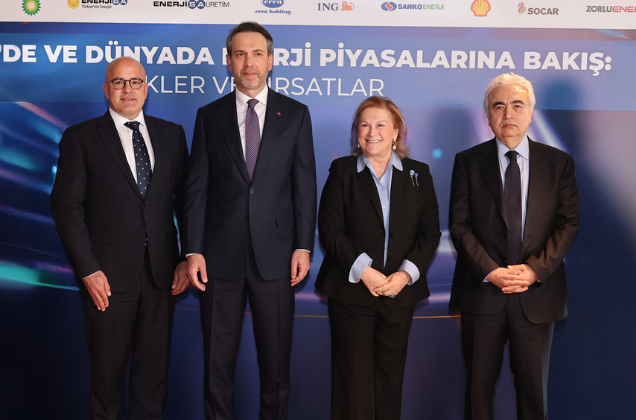
The 18th IICEC Conference, organized by Sabancı University Istanbul International Center for Energy and Climate (IICEC) with the theme of “An Overview of Energy Markets in Turkey and the World: Risks and Opportunities”, was held on April 11. The guest of honor at the conference, which was hosted by Sabancı University Founding Chair of the Board of Trustees Güler Sabancı and Executive Director of the International Energy Agency (IEA) and Honorary Chair of IICEC Dr. Fatih Birol at The Seed, Sakıp Sabancı Museum, was the Minister of Energy and Natural Resources of the Republic of Turkey, Alparslan Bayraktar.
At the conference, the dynamics, risks, and opportunities that stand out in the energy sectors in the world and Turkey were evaluated in a multi-faceted manner in the panel held with the participation of Minister of Energy and Natural Resources Alparslan Bayraktar and IEA Executive Director Dr. Fatih Birol, moderated by IICEC Board Member Kıvanç Zaimler.
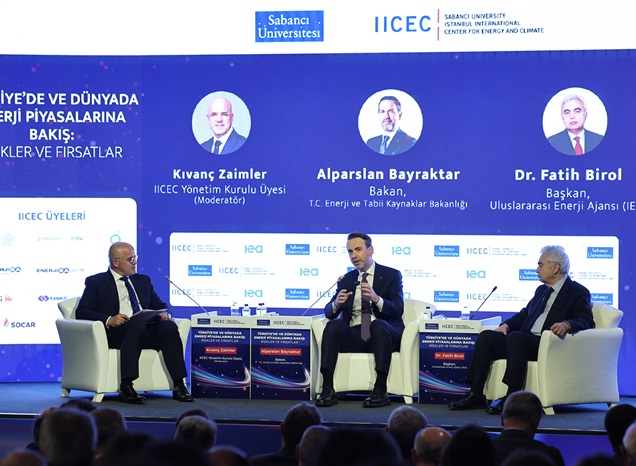
“Energy Transformation 1.0 Successfully Carried Out”
Alparslan Bayraktar stated that Turkey is implementing comprehensive “smart energy transformation” strategies within the scope of strengthening energy security, increasing independence in energy, and net-zero emission targets. Bayraktar emphasized that important structural transformations have been realized with the reforms carried out in energy for many years and that investments were made by the private sector in the period in which the installed power increased from 30,000 MW to 107,000 MW. Bayraktar said that Turkey stands out with its developed energy market structure among developing economies.
“The smart energy transformation story continues in Turkey”
Bayraktar continued as follows: “Energy transformation should be in the form of smart energy transformation. When energy transformation is only dependent on global efforts and climate change, it becomes a target with some missing aspects. Smart transformation must definitely be a process compatible with consumers and the market. Turkey has successfully carried out energy transformation 1.0.” Drawing attention to renewable energy investments, Bayraktar stated that almost all of the capacity put into operation last year was based on renewable energy, that a new growth process has been entered with the developments in the YEKA (renewable energy resource area) model and that Turkey aims to put into operation 8,000 MW of renewable energy power every year until 2035, and that efforts are being made to initiate the super permit process. Bayraktar also touched on the issue of natural gas and emphasized the role of natural gas as a transition fuel in the transition from fossil to nuclear. Bayraktar also shared the latest developments in Black Sea gas and Gabar oil, and stated that domestic production of natural gas will reach 7.5 billion cubic meters in 2026.
“Energy efficiency is one of our main priorities”
Alparslan Bayraktar stated that the recommendations of the IICEC Turkey Energy Efficiency Outlook study presented within the scope of the conference are compatible with the Ministry’s strategies and priorities. He continued, “Energy efficiency is the most important tool for energy transformation in Turkey. We are acting with a comprehensive energy transformation program by strengthening energy efficiency, renewable energy, our oil and natural gas production, nuclear, critical mines, and the energy infrastructure that will support all of these. I believe that we will continue our success in reducing energy density that we have demonstrated worldwide in the last three years.”
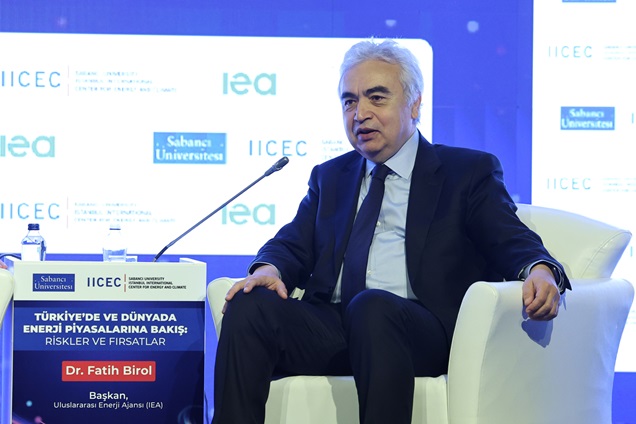
“The main reason for the energy transformation is economic and industrial dynamics”
The Executive Director of the International Energy Agency (IEA) and Honorary Chair of IICEC, Dr. Fatih Birol, evaluated the recent developments and trends in the world energy sector. Stating that the transformation in energy continues strongly, Dr. Birol stated that the main reasons for this transformation are economic and industrial policies and competitiveness. Stating that 85% of the new power plants established in the world are based on renewable energy, one in every four vehicles sold is an electric vehicle, and that battery installations are also growing rapidly, Dr. Birol said, “At COP 28, we suggested that renewable energy investments should increase by 3 times the current capacity and the efficiency rate by 2 times. After a 2.5-year break, renewable energy investments have now increased by 2.7 times. However, the world has failed in energy efficiency. There has been only a low increase of 1 percent in this area.” Birol, who pointed out that the electric age has begun in the world, said, “Artificial intelligence, electric vehicles, and air conditioners are triggering the demand for electricity. This trio will increase the demand for electricity by the sum of the total production of the USA and Europe in 5 years. There is a tremendous transition to nuclear in the world. Nuclear will reach a historic peak in 2025. Turkey also needs more than one nuclear power plant. Nuclear is important for the security of supply in electricity. There are significant advances in Small Modular Reactor technologies.”
“We will see a soft period in oil and natural gas prices”
Explaining that the IEA examines the energy policies of countries every five years and presents recommendations, Birol said: “Supply security is extremely important in energy. With the recent developments, the world is going through a dangerous period in terms of supply security. Energy security is everyone's problem. Turkey has taken important steps in this regard. There have been very important developments in renewable energy. How fossil fuel prices will develop in the coming years is extremely important. The increase in oil demand is slowing down and the natural gas market is developing in favor of buyers. There is good news for Turkey here. We will see a soft period in oil and natural gas prices. We can expect a weakening in both oil and natural gas prices. This will be a positive development in terms of reducing energy imports, which are an important item in Turkey's current account deficit.” Dr. Birol also stated that artificial intelligence has become a trillion-dollar industry and that a new study has been published by the IEA on the relationship between artificial intelligence and energy, and that artificial intelligence is expected to bring new opportunities for grid management. Dr. Birol also emphasized that the political wind in the world is blowing against the fight against climate change, but climate risks are felt more, which is actually an important contradiction.
“A rush for critical minerals”
The panel also addressed the increasing importance of critical minerals and supply chains. Dr. Fatih Birol stated that copper and many other minerals are critical for electric vehicles, networks, and batteries and that there is a need for significant investment, while Alparslan Bayraktar emphasized that they have published Turkey’s inventory on critical minerals and that the critical mineral rush period we are going through is closely related to geopolitical issues.
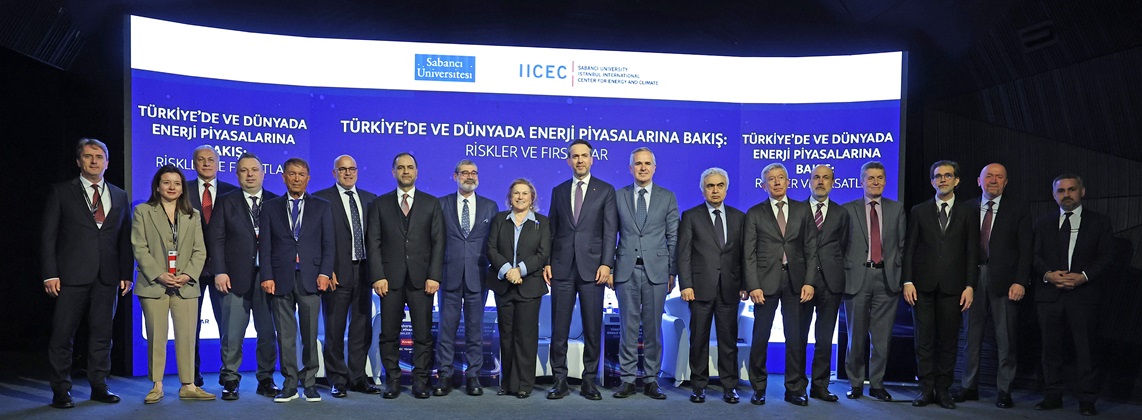
“Our country has become one of the largest energy sectors in Europe”
In her speech, Founding Chair of the Sabancı University Board of Trustees, Güler Sabancı drew attention to the fact that significant developments have been witnessed recently in the energy sector, which plays a key role in ensuring economic and social development. Sabancı said, “There are important developments in energy security, energy trade, and competitiveness, and the critical role of energy in sustainable development. Our country has become one of the largest and most dynamic energy sectors in Europe and the world with its energy strategies, increasing investments, developing energy infrastructures and markets. When we look at many parameters such as electricity and natural gas consumption, infrastructures, and renewable energy installed capacity, we are among the top five in Europe. Our energy consumption per capita is still half of the OECD average. However, factors such as young population, urbanization, industrialization, and increasing mobility needs create a strong basis for growth in demand. Recently, important steps have been taken by the public and private sectors in energy in terms of strengthening energy security, increasing energy independence, and reaching net-zero emission targets. Energy supply security and competitiveness will continue to be the most critical supporters of our country’s economic growth and social development goals.”
“IICEC is a pioneering model and center in Turkey”
Referring to IICEC’s “energy outlook” studies that have been pioneering in the sector since 2020, Güler Sabancı said, “IICEC has carried out the “Turkey Energy Efficiency Outlook” study in the field of energy efficiency, where important steps have been taken in energy policies recently and Turkey has high potential and critical opportunities, with a participatory approach with public, private sector, and academic stakeholders, which is a first in Turkey. Creating value from science-based approaches and business world collaborations is one of the most critical success factors in today’s world. IICEC is a pioneering model and center in Turkey in this perspective. Bringing together organizations that are leaders in their fields and add value to their sectors, IICEC supports a more sustainable energy future through collective wisdom and collaborations.”
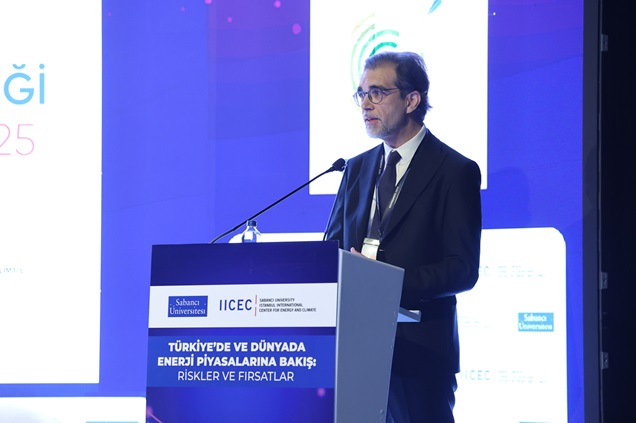
Critical Findings and Recommendations in the IICEC Turkey Energy Efficiency Outlook Report
IICEC Director Bora Şekip Güray, who carries out studies that provide an in-depth perspective on the energy sector, made the launch presentation of the ‘IICEC Turkey Energy Efficiency Outlook Report’ at the conference. The study, which was conducted with a pioneering, analytical, and long-term perspective, modeling and scenario analyses in the sector, presented the concrete energy, economic, and climate contributions of the efficient growth perspective in energy. According to the findings of the study, the Efficient Growth Scenario can provide all of Turkey’s energy security, energy independence, and net-zero emission targets in a cost-effective manner. While an annual average economic gain of 58 billion dollars is achieved in the Efficient Growth Scenario through savings in energy imports and emissions until 2053, the annual average benefit-cost multiplier is 4.5. The Efficient Growth Scenario provides an annual average additional economic contribution of 28 billion dollars with an annual average investment of 4 billion dollars compared to the Base Scenario. In the Efficient Growth Scenario, the carbon intensity of the energy sector decreases by 70% by 2053, while the import rate in primary energy supply decreases from the current level of approximately two-thirds to tens of percent with the contribution of the increase in domestic production.
The study emphasizes the recently strengthened policy focus and targets in energy efficiency, while 11 concrete recommendations are presented for the sustainability of efficient and high value-added growth in energy. Bora Şekip Güray stated that Turkey can reach an exemplary position on a global scale through efficient and competitive growth in energy with its strong demand dynamics on the one hand and high energy efficiency potential in demand sectors on the other. Güray stated that the important steps taken recently constitute an important basis, and that developments in this direction will strongly support Turkey’s vision of becoming a central country and net exporter in energy, as well as its energy security.

